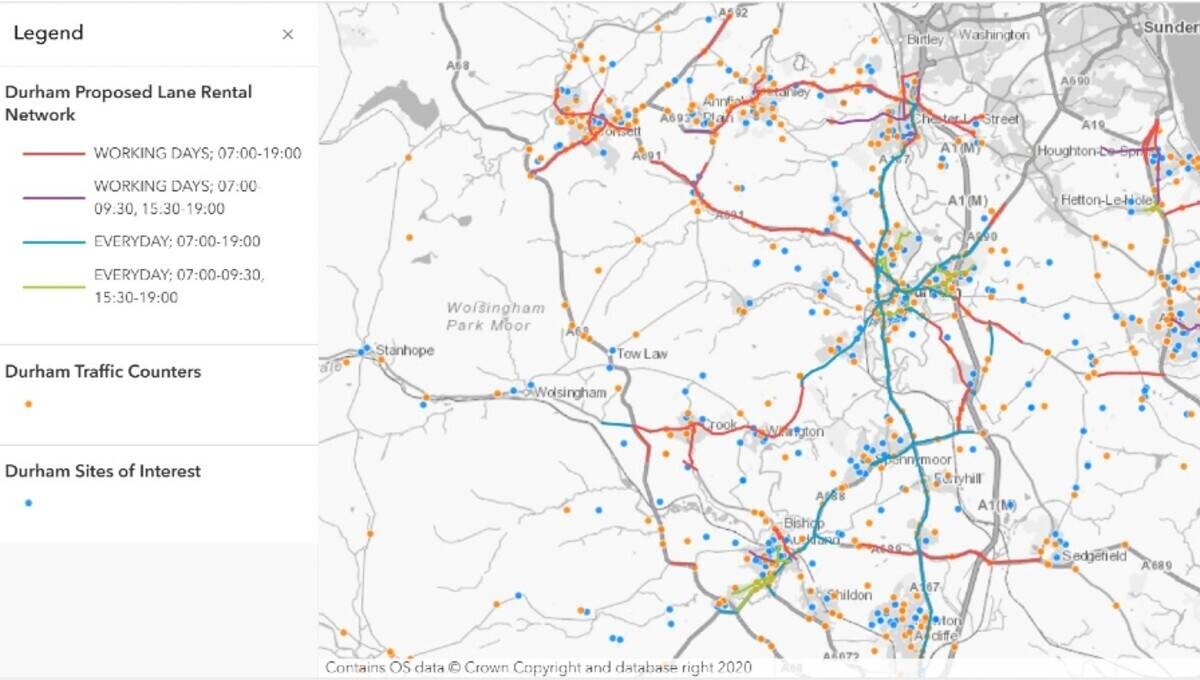The NLPG (National Land and Property Gazetteer) the master list of addresses for residential and commercial property in England and Wales, received a clean bill of health in the recently published âDatabase State' report from the Joseph Rowntree Reform Trust.
The report states that a quarter of all government databases are illegal and should be scrapped or redesigned. Unlike many of the 46 databases highlighted in the report the NLPG was classified as non-personal data and unlikely to fall foul of the Data Protection Act and thus given a green light in terms of privacy impact and one of only six to do so.
The NLPG which is in daily use by Local Government across England and Wales came into being in 1999 and is one of a few Government IT success stories. Every large local authority in England and Wales is required to complete and maintain its own comprehensive list of addresses each identified by a unique number and precise location using the National Grid with the data conforming to a British Standard. These feed into a national computer hub, the NLPG, which contains not only residential and commercial property but also multiple occupation, buildings within complexes, and other structures. The NLPG is cross-checked against other national databases such as Council Tax, National Non-Domestic Rates, and the Post Office Address File.
Since 1999 the quality of the NLPG has improved beyond all recognition and it now performs an indispensable role within local government where it is considered to be a major asset providing a single source of property information for all departments and support systems. The real impact of the NLPG has been in realised in internal cost savings and in improved service delivery, for example most fault reporting such as abandoned cars, broken street lamps and enquiries can be achieved on line or are facilitated by CRMsystems in call centres linked by the NLPG.
More recently the NLPG has been linked to two national projects, FiReControl, a project to improve and speed up Fire and Rescue crew mobilisation and CORE, a project to ensure that the data held in electoral registers is as accurate and complete as possible provides efficiency benefits in managing the delivery of elections and for use by political parties.
The NLPG is run on behalf of local government by the Improvement and Development Agency (IDeA) with Intelligent Addressing (IA) as the national custodian.
11 May 2009
Notes to Editors:
The NLPG was initiated in 1999 to become the master address dataset for England and Wales and the central hub for the 376 address creating Local Authorities and their Local Land and Property Gazetteers (LLPGs). Based on twelve digit unique property reference numbers (UPRNs) the underlying principle of these gazetteers is to provide a single definitive address database for all departments and systems across a local authority in order to cut costs, improve efficiency and service delivery. www.nlpg.org.uk
The NLPG is a joint venture between the Local Government Information House part of IDeA and Intelligent Addressing Limited.
Intelligent Addressing is a specialist private sector consultancy (an SME) employing recognised experts in addressing. It was originally set up to help develop the National Land and Property Gazetteer (NLPG) on behalf of local government and now manages the NLPG and NSG (National Street Gazetteer) central data hubs under the terms of the Mapping Services Agreement (MSA) with local government.
Intelligent Addressing contacts:
Gayle Gander, Head of Marketing | t: 0207 747 3500 | e: [email protected] | w: www.intelligent-addressing.co.uk
The Improvement and Development Agency (IDeA) works in partnership with all councils, to enhance the performance of the best, accelerate the speed of improvement of the rest, and develop the sector as a whole.
Working in partnership with the local government community developing national infrastructure projects that enable councils to deliver local services more effectively, LGIH acts as an intermediary between the public and the private sector enabling it to negotiate with private companies on behalf of local authorities in order to provide key parts of a technical infrastructure for improved service delivery.
IDeA contact:
Paul Bailey | t: 020 7296 6600 | e: [email protected] | w: www.idea.gov.uk
The NLPG which is in daily use by Local Government across England and Wales came into being in 1999 and is one of a few Government IT success stories. Every large local authority in England and Wales is required to complete and maintain its own comprehensive list of addresses each identified by a unique number and precise location using the National Grid with the data conforming to a British Standard. These feed into a national computer hub, the NLPG, which contains not only residential and commercial property but also multiple occupation, buildings within complexes, and other structures. The NLPG is cross-checked against other national databases such as Council Tax, National Non-Domestic Rates, and the Post Office Address File.
Since 1999 the quality of the NLPG has improved beyond all recognition and it now performs an indispensable role within local government where it is considered to be a major asset providing a single source of property information for all departments and support systems. The real impact of the NLPG has been in realised in internal cost savings and in improved service delivery, for example most fault reporting such as abandoned cars, broken street lamps and enquiries can be achieved on line or are facilitated by CRMsystems in call centres linked by the NLPG.
More recently the NLPG has been linked to two national projects, FiReControl, a project to improve and speed up Fire and Rescue crew mobilisation and CORE, a project to ensure that the data held in electoral registers is as accurate and complete as possible provides efficiency benefits in managing the delivery of elections and for use by political parties.
The NLPG is run on behalf of local government by the Improvement and Development Agency (IDeA) with Intelligent Addressing (IA) as the national custodian.
11 May 2009
Notes to Editors:
The NLPG was initiated in 1999 to become the master address dataset for England and Wales and the central hub for the 376 address creating Local Authorities and their Local Land and Property Gazetteers (LLPGs). Based on twelve digit unique property reference numbers (UPRNs) the underlying principle of these gazetteers is to provide a single definitive address database for all departments and systems across a local authority in order to cut costs, improve efficiency and service delivery. www.nlpg.org.uk
The NLPG is a joint venture between the Local Government Information House part of IDeA and Intelligent Addressing Limited.
Intelligent Addressing is a specialist private sector consultancy (an SME) employing recognised experts in addressing. It was originally set up to help develop the National Land and Property Gazetteer (NLPG) on behalf of local government and now manages the NLPG and NSG (National Street Gazetteer) central data hubs under the terms of the Mapping Services Agreement (MSA) with local government.
Intelligent Addressing contacts:
Gayle Gander, Head of Marketing | t: 0207 747 3500 | e: [email protected] | w: www.intelligent-addressing.co.uk
The Improvement and Development Agency (IDeA) works in partnership with all councils, to enhance the performance of the best, accelerate the speed of improvement of the rest, and develop the sector as a whole.
Working in partnership with the local government community developing national infrastructure projects that enable councils to deliver local services more effectively, LGIH acts as an intermediary between the public and the private sector enabling it to negotiate with private companies on behalf of local authorities in order to provide key parts of a technical infrastructure for improved service delivery.
IDeA contact:
Paul Bailey | t: 020 7296 6600 | e: [email protected] | w: www.idea.gov.uk



